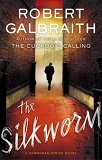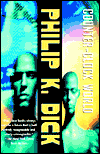
Flashforward, by Robert J. Sawyer
Book Review by Jens Rushing
In the future of 2009 (the book was written ten years ago), the team at CERN is firing up the Large Hadron Collider to produce the Higgs boson, a particle present only at the Big Bang, the discovery of which will lock the Nobel. When the button is pressed, though, everyone on Earth blacks out for two minutes while their consciousnesses leap forward twenty-one years, giving them visions of the future and great plot hooks. Lloyd Simcoe, the project lead, glimpses a future where he is with a woman not his fiancée; grad student Jake Horowitz sees himself making passionate love with a casual acquaintance; and, most compellingly, Theo Procopides has no vision, implying that he'll be dead. Then he gets a phone call from a woman who, in the future, was reading a newspaper account of his murder.
The plot coasts from here, as everyone must deal with the repercussions of their visions. Are these things destined to occur? Can they escape fate? What ensues is a patient, nuanced discussion of free will versus predestination and the nature of causality. Some people seek the things that they saw in their visions and bring them into being simply because they were foreseen that way. Others do terrible things to try to escape their futures, hoping for a sort of Pyrrhic victory against fate. The novel juggles the multiple plots very well, weighing consequences from one storyline against another, showing the nature of cause and effect in human lives as it brings the present up to 2030.
One of the more interesting aspects of the book was its futurism; it depicts a very reasonable 2009. Some of the things have come to pass, such as Windows 2009 (Windows 7) and print-on-demand in bookstores (the technology's in place), and some things have not; we don't have grapes genetically modified to retain their freshness unrefrigerated. Too bad. The 2030 predictions seem pretty plausible, too -- auto-controlled cars, ubiquitous "flimsies" -- paper-thin, touch-sensitive computer displays. The technology already exists for flimsies, too, and the versatile devices of 2030 are mere refinements of that tech. Very plausible, and very cool.
Sawyer's style is lucid, efficient, and uninspired. His voice does its best to disappear, leaving the story defenseless to the ravages of the reader's mind. It works; I consumed the book in a day. It's a quick read, but a thought-provoking one, recommendable to anyone interested in near-future scifi or the fabric of spacetime, and the things we can do to it with our supercolliders.
|
Click here to buy Flashforward, by Robert J. Sawyer on Amazon
|
Flashforward, by Robert J. Sawyer on Amazon

| More Books You Might Like |
| Comments on Flashforward, by Robert J. Sawyer |
| There are no comments on this book. |



